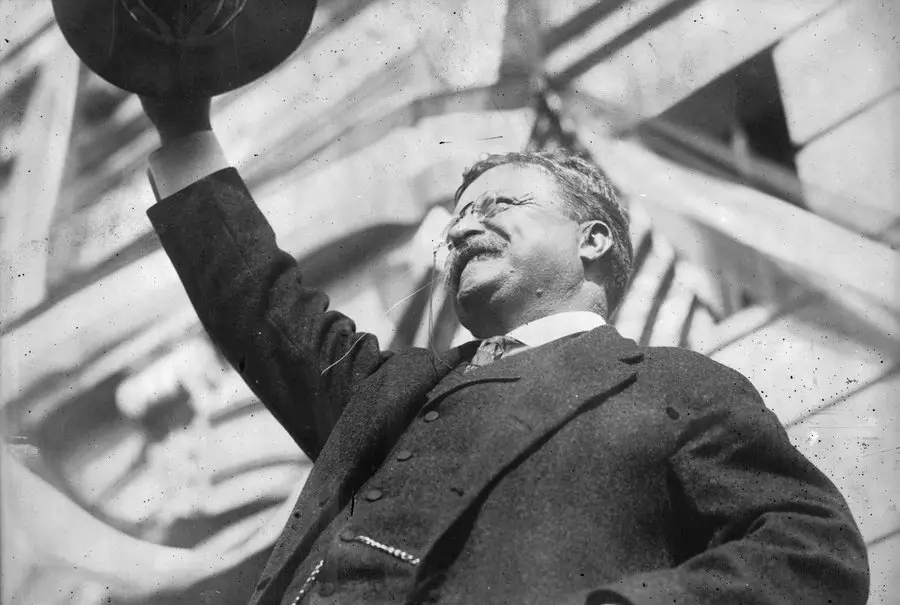The Problem with Progressivism
A constant demand for improvement can prioritize change over more important considerations.
By Tim Philbin, College of the Holy Cross
Around the turn of the 20th century, America was in the grip of social problems unlike any it had faced before.
The economy was dominated by a handful of fantastically wealthy businessmen who had monopolized their respective industries, low income laborers were forced to work impossibly long hours under treacherous conditions for minuscule wages, and swells of immigrants arriving in the Land of Opportunity were met with vitriolic nativism at every turn. America was a country plagued by social and economic inequity. The future did not look bright.

But out of this dark period in American history emerged a movement that eventually guided the country to a new era of prosperity and opportunity. It was a movement defined by its belief that you can and should earnestly address yourself to the problems of your day, and leave a better world for your children than the one you had. This movement is known as the Progressive movement.
With President Theodore Roosevelt leading the country, the Progressives made great strides forward. They busted up trusts, stamped out corruption, passed child labor laws, expanded suffrage to women, secured the rights of workers—the list goes on. It was undeniably successful in ameliorating the problems of its time.
Nowadays, it seems that everyone is trying desperately to be seen as “progressive.” The ideology is certainly the status quo for college students (there’s a reason that Hillary Clinton has spent most of this election bending over backwards to show young voters that she is “progressive”), but more than that, it is the status quo of the entire American political system. Even though most republicans would deny it vigorously, they too are, in their own way, progressive. Think about it; how often do you hear a republican lawmaker say “We have to fight for a better world for our children?” Ideologies vary from party to party, but the common thread between them is progressivism, the notion that the future must always be better than the past.
The ubiquitousness of progressivism might seem like a good thing. After all, if it has become widespread, shouldn’t that mean that things will always be getting better? Well, not exactly.
Here’s the problem; the progressivism of today is a far cry from the progressivism of Teddy Roosevelt. In Teddy’s era, the great strength of the progressives was their clear-eyed perception of reality. They were acutely aware of the problems of their day, and were unfailingly practical in crafting their solutions. They relied on the power of legislation to enact change, and that is why they were successful.
The progressives of the modern day, on the other hand, do not share this wonderful practicality. For them, narrative has superseded evidence.
In other words, it has become more important for them to bring about “Progress” than it is to realistically assess and solve problems.
The result is a phenomenon that I refer to as “ghost chasing.”
When there are not serious problems to be addressed, in order to preserve the narrative, modern progressives tend to invent vague, nebulous problems to justify their pursuit of “Progress.” Once you are aware of it, you will see ghost chasing all the time from both the Right and the Left.
Any kind of oversimplified and unsubstantiated narrative would qualify, and unfortunately those are all too common these days. So, without further explanation, here are three specific examples of areas in which progressivism has led to ghost chasing (but keep in mind that there are many more than these).
1. Terrorism
Just last week, during the Republican National Convention, Republican senator Joni Ernst claimed that “ISIS is present in all 50 states.” Really? ISIS is present in all 50 states? So ISIS members just came to America, infiltrated all 50 states and then sat around and did nothing? That’s your theory?
Obviously, there are some holes in this way of thinking. This is an excellent example of ghost chasing; when the narrative (in this case the one that claims that America is under siege from radical Islamic terrorists) matters more than the facts, then facts are treated as malleable objects that can be molded to fit a given situation.
As a progressive Republican, Joni Ernst subscribes to the narrative that the progress that America has made needs to be constantly safeguarded from those who would destroy it given the chance. How often do you hear that “our way of life is under attack?” To suit that narrative, she cited an obviously ridiculous piece of evidence. This is one of the dangers of ghost chasing: it treats facts as negotiable.
2. Institutional Racism
Institutional racism has become a bit of a buzz term. It seems to come up in nearly every discussion of anything remotely pertinent to race in America. To explain the social ills faced by racial minorities in this country, progressives blame institutional racism, by which they mean some kind of society-wide indoctrination of all white people to think that racial minorities are inferior and deserving of substandard treatment.
The problem here is that “institutional racism” is a meaningless term unless it refers to a specific policy or set of policies set forth by a given institution with racist intent. Jim Crow, for example, was institutionalized racism. Segregation laws were explicitly racist. The problem with crying institutional racism today is that those segregation laws have been repealed. There no longer remain racist laws in this country because the civil rights movement fought long and hard to eradicate them.
This is not to say that racism no longer exists at all; there are undeniably racist people in America, but institutional racism as a nebulous collective bias against people of color is undeniably ghost chasing because such a claim cannot be supported or falsified by evidence.
3. Illegal Immigration
Illegal immigration has been one of the most debated issues of the current presidential election. The recently confirmed republican nominee Donald Trump has boisterously affirmed that Mexican immigrants to the Unites States are “rapists,” that illegal immigration poses a fundamental threat to our way of life. In Donald Trump’s America, dangerous, hardened criminals are maliciously pouring over the border with the intent to harm honest, decent Americans just trying to make a living. The problem with that line of thinking is that it bears very little relationship to reality.
There is no data to support this assertion. In fact, there is actually some data to suggest that undocumented immigrants commit crimes at a rate significantly lower than their native born counterparts. Trump and his supporters have allowed their xenophobia to surpass their desire for truth. This makes his anti-immigrant tendencies a classic example of ghost chasing.
So remember, ghost chasing is dangerous, but it has one great weakness: facts. Demand evidence from your politicians and this problem goes away. So the next time you see a politician chasing ghosts, don’t let them get away with it. He (or she) doesn’t deserve your vote.












